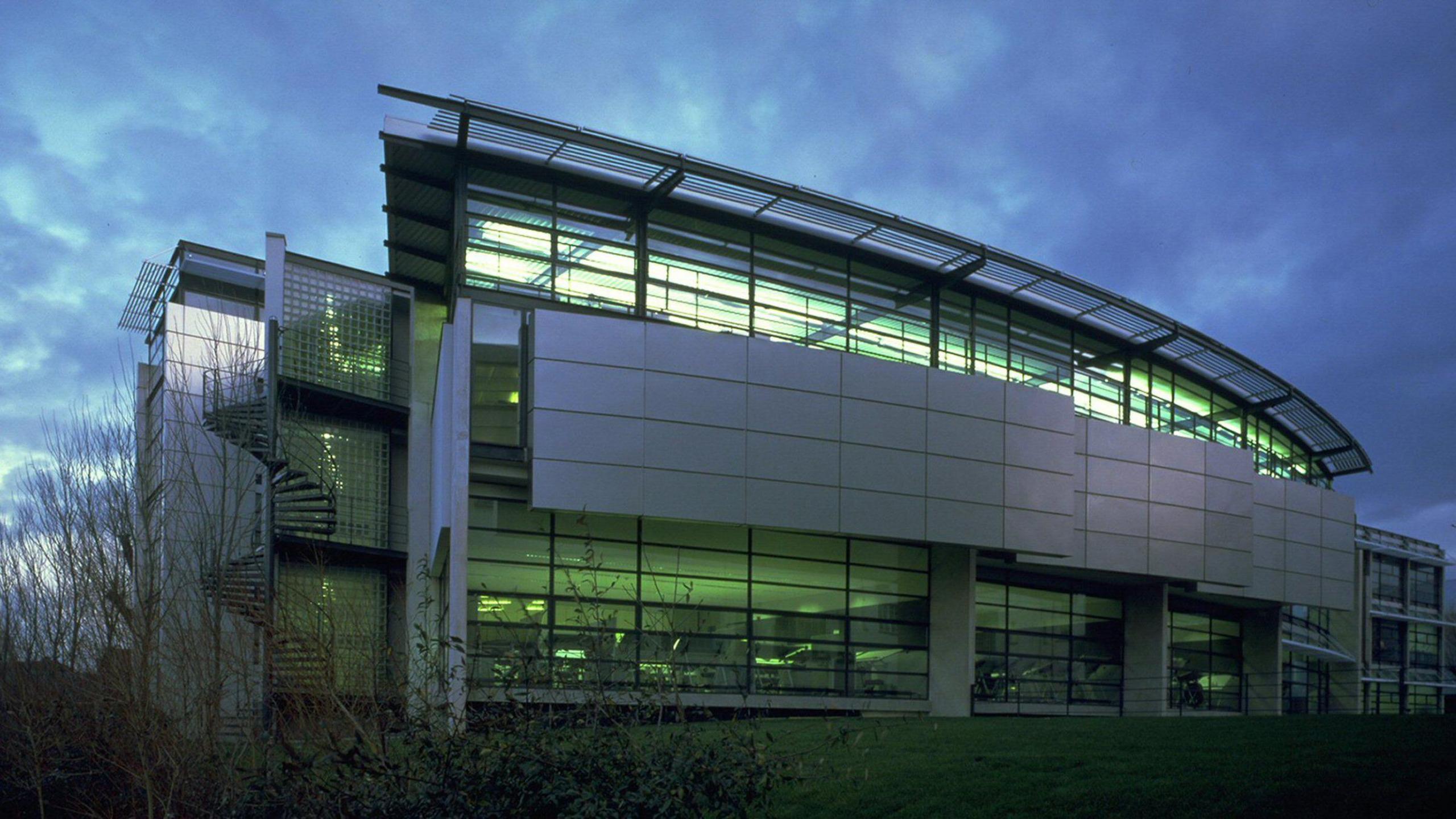Britain's 'best new building of 1996' to be demolished

Centenary Building in Salford won the Stirling Prize in 1996 but now faces demolition.
- Published
Salford University's Centenary Building, which won Britain's most prestigious architectural award when it was first built, is to be demolished.
The building was the inaugural winner of the Stirling Prize in 1996, but has been vacant for the past eight years.
Judges had once declared it Britain's best new building, saying it was "a dynamic, modern and sophisticated exercise in steel, glass and concrete".
But the university says "its ageing infrastructure means it no longer meets modern standards and requirements."
"It has now been vacant for a third of its built life. Careful consideration has been given to the history.... and the University of Salford, intends to demolish the building."
Architect Stephen Hodder said he was "disappointed" and suggested the building could instead be adapted and re-used.
"I've tried not to be... emotionally attached to the building. But I think that with concerns about climate change and carbon, we should be going to great lengths to see how we can adapt existing buildings."
The proposed demolition is part of Salford City Council's wider redevelopment plan for the area. No timeline has been announced yet.
But the Twentieth Century Society has campaigned for the Centenary Building to be listed saying that it had been described in the Architect's Journal as “the best building to emerge from the new university building boom of recent years”.
Built for less than ÂŁ4 million and designed in less than 12 weeks, it was originally planned to house the School of Electrical Engineering but was changed during construction to the Faculty of Art and Design.
The steel and glass "internal street" was praised by the architectural world, winning both the Stirling Prize and then a Civic Trust award in 1998.
One of the features praised in 1996 was the decision to not install air conditioning. The natural ventilation system and underfloor heating were seen as groundbreaking in environmental terms.
However, former staff complained it was too hot in summer and too cold in winter.
The lack of sound insulation was also a regular complaint. The sound of feet on the metal staircases reverberated around the building.
The building has sat empty and unused for more than eight years. A proposal in 2018 for it to be converted into a primary school went nowhere.
Mr Hodder says, 30 years on, much has been learned about about the technology of the building but suggests the issues "can be addressed with environmental controls".
"I guess we have to ask the question as to whether they are sufficiently grave as to warrant demolition? I would venture not."